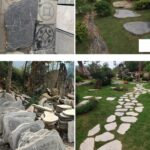As we continue to explore the cosmos, advancements in technology and observational techniques are revolutionizing our understanding of the universe. Space telescopes like the Hubble Space Telescope and the recently launched James Webb Space Telescope are providing unprecedented views of distant galaxies, star formation, and the early universe. Moreover, the study of gravitational waves, ripples in spacetime caused by massive cosmic events such as black hole mergers, has opened a new window into understanding the universe. Theories such as string theory and loop quantum gravity propose new frameworks for understanding the fundamental nature of spacetime and matter. As we delve deeper into the mysteries of the cosmos, the philosophical implications of cosmology also come to the forefront.
It emphasizes the importance of self-realization and the connection between body, mind, and spirit. In Hinduism, yoga is not merely a physical exercise but a pathway to achieving moksha, or liberation from the cycle of birth and rebirth. This illustrates how practices within a religion can serve both physical and spiritual purposes, fostering a holistic approach to well-being. Yin and Yang, a concept from Taoism, further illustrates the balance that many religions seek to achieve. This duality represents the interconnectedness of opposites, such as light and dark, male and female, and good and evil. Taoism teaches that harmony arises from the balance of these forces, encouraging followers to live in accordance with the natural flow of the universe.
Each era has contributed to the evolution of this art form, shaping the way we perceive and engage with visual storytelling. Regular exercise improves heart health by increasing circulation, lowering blood pressure, and enhancing the efficiency of the heart. Engaging in activities such as running, swimming, or cycling can significantly improve cardiovascular fitness, leading to a longer and healthier life.
It also highlights the incredible craftsmanship of the artisans who created these figures, showcasing the cultural significance of art in ancient societies. For example, the discovery of ancient pottery provides insights into the dietary habits, trade practices, and social structures of past civilizations. The styles, shapes, and decorations of pottery can indicate the cultural influences and interactions between different groups. Archaeologists often analyze the residue found in pottery to determine what substances were stored or cooked, offering a glimpse into the culinary practices of ancient cultures.
Fear can manifest in various forms, ranging from rational fears, which are based on real threats, to irrational fears, known as phobias. These fears can significantly impact an individual’s quality of life, leading to avoidance behaviors and social isolation. Understanding the psychological underpinnings of phobias is essential for developing effective treatment strategies. One of the key theories in understanding fear is the cognitive-behavioral model, which posits that our thoughts, feelings, and behaviors are interconnected.
Their art not only raises awareness but also encourages dialogue around pressing issues such as human rights, immigration, and environmental justice. By engaging with these works, audiences are prompted to reflect on their own beliefs and the structures that uphold inequality. Undoubtedly, the role of art in social justice extends beyond mere representation; it actively shapes public discourse.
In multilingual classrooms, the language of instruction can significantly impact students’ academic performance and self-esteem. When students are taught in a language that is not their mother tongue, they may struggle to fully engage with the material, leading to feelings of inadequacy and alienation. Conversely, when educational systems embrace students’ native languages, it can enhance their learning experience and foster a positive sense of identity.
XXX material Giriş İncelemesi
The discovery of ancient ports and trade routes has shed some light on their maritime activities, yet many aspects of their civilization remain enigmatic. Riddles surrounding the ancient Sumerians, often regarded as one of the world’s first civilizations, also captivate scholars. The Sumerians developed cuneiform writing, one of the earliest forms of writing, which has provided valuable insights into their society.
- Reimagining the role of technology in our lives, we must also consider the importance of mental health and well-being in the digital age.
- By prioritizing innovation, we can unlock new pathways to sustainable development that benefit both people and the planet.
- By actively participating in gameplay, parents can reinforce the educational aspects of games and facilitate discussions about the concepts being explored.
- Creativity is not limited to artists and musicians; it is a fundamental aspect of human nature that manifests in various forms.
- By prioritizing ethical practices in technology, we can create a media environment that fosters informed engagement rather than division.
- Rituals are a significant feature of most religions, serving as a means of expressing faith and fostering community among believers.
For example, AI can help identify factors contributing to the spread of misinformation during public health crises, enabling more effective communication strategies. Just as the scientific community embraces AI, it is essential to invest in education and training to prepare the next generation of researchers. By fostering a strong foundation in both scientific principles and AI technologies, future scientists will be better positioned to leverage these tools effectively in their research endeavors. Juxtaposed with the need for education, collaboration between academia and industry is also crucial for advancing AI in science. Partnerships between universities and tech companies can facilitate the development of innovative AI applications tailored to specific scientific challenges.
Kripto Bonusu Veren Bahis Siteleri XXX material – Mobil Giriş Yeni
By recognizing and harnessing the potential of art, we can pave the way for a future where psychological health is prioritized, and individuals are empowered to express themselves creatively. In doing so, we can cultivate a world that values the importance of mental well-being and the role that art plays in achieving it. Since the dawn of civilization, humanity has been driven by an insatiable curiosity about its origins and the events that have shaped its journey. Archaeology, the scientific study of human history through the excavation of sites and the analysis of artifacts, plays a pivotal role in this quest for knowledge. Significantly, archaeology serves as a bridge between the present and the past, allowing us to piece together the stories of those who came before us. Through meticulous excavation and analysis, archaeologists uncover artifacts such as tools, pottery, and structures that offer glimpses into the daily lives of ancient peoples.
Climate change, resource depletion, and environmental degradation are issues that require urgent attention. Space-based technologies, such as Earth observation satellites, play a crucial role in monitoring environmental changes, tracking natural disasters, and managing resources. By providing critical data on climate patterns, deforestation, and urbanization, these technologies empower scientists and policymakers to make informed decisions for sustainable development. The intersection of space science and Earth science underscores the importance of a holistic approach to understanding our planet and its place in the universe. As we venture further into the cosmos, ethical considerations surrounding space exploration also come to the forefront. The scientific community is increasingly recognizing the need for responsible exploration, emphasizing the importance of planetary protection protocols and sustainable practices.
- Community workshops, school programs, and social media campaigns can all play a role in raising awareness and fostering a culture of sustainability.
- As we strive to understand the past, we must also recognize the importance of preserving these texts for future generations.
- Emotional responses to beauty can vary widely among individuals, influenced by personal experiences and memories.
- The Quran, regarded as the literal word of God, serves as the primary source of guidance for Muslims.
- Many individuals struggle with saying no to additional responsibilities, leading to increased stress and burnout.
- By empowering individuals and communities to take action, we can collectively work towards a future where water remains a reliable source of life for generations to come.
In addition to memory and emotional regulation, sleep also plays a significant role in attention and focus. During the various stages of sleep, the brain undergoes processes that help restore and rejuvenate cognitive functions. For instance, deep sleep, or slow-wave sleep, is particularly important for maintaining attention and concentration. When individuals do not get enough deep sleep, they may experience difficulties in sustaining attention, leading to decreased productivity and increased errors in tasks requiring focus. Furthermore, the effects of sleep on cognitive functions extend to creativity and problem-solving abilities.
These tools provide valuable data that can inform policy decisions and disaster response efforts, ultimately helping to safeguard our planet and its inhabitants. Moreover, the prospect of utilizing resources from space presents exciting opportunities for sustainable Win games unfairly development. Asteroids, for instance, are rich in metals and minerals that could be mined to support Earth’s growing population. This approach not only makes space missions more feasible but also opens up new avenues for economic growth and resource management.
Establishing a new world order, the aftermath of World War II saw the emergence of the United States and the Soviet Union as superpowers, leading to the Cold War. This period was marked by ideological conflict, military alliances, and a race for nuclear supremacy, shaping global politics for decades to come. Efforts to prevent future conflicts led to the establishment of the United Nations in 1945, an organization aimed at promoting peace and cooperation among nations. The UN’s formation was a direct response to the devastation of the world wars, reflecting a collective desire to foster dialogue and diplomacy in the face of potential conflict. Enlightening the lessons learned from the world wars, historians and scholars emphasize the importance of understanding the causes and consequences of these conflicts.
Their first public screening of films in Paris on December 28, 1895, is often regarded as the birth of cinema as we know it. The Lumières’ films, including “Workers Leaving the Lumière Factory,” captured everyday life, emphasizing realism and the beauty of the mundane. Filmmakers began to explore narrative storytelling, leading to the creation of short films with plots. These technologies challenge traditional notions of storytelling, allowing for immersive experiences that engage audiences in unprecedented ways. Cinematographers are now tasked with adapting their skills to create compelling narratives in these new formats, further expanding the possibilities of visual storytelling.
From the early days of silent films to the digital age of streaming and immersive experiences, cinematography has continually evolved, pushing the boundaries of visual storytelling. As we look to the future, the role of the cinematographer will continue to be vital in shaping the way stories are told on screen. The ongoing advancements in technology, coupled with the creative vision of filmmakers, will undoubtedly lead to new innovations and techniques that will redefine the art of cinematography.
With the rise of online platforms and social media, individuals must learn to navigate the digital landscape responsibly. This includes understanding the implications of their online actions, recognizing misinformation, and engaging in constructive dialogue. Education systems will need to incorporate digital literacy into their curricula, preparing students to be informed and responsible digital citizens who can contribute positively to society. Telemedicine has already gained traction, allowing patients to consult with healthcare providers remotely. As technology continues to advance, we can expect even more personalized and accessible healthcare solutions.
- Natural selection, a key mechanism proposed by Charles Darwin, explains how certain traits become more prevalent in a population over time due to their advantages in survival and reproduction.
- Every region has its unique water challenges, influenced by geography, climate, and socio-economic factors.
- Water scarcity not only impacts drinking water availability but also threatens agriculture and food security.
- Local educational institutions and research organizations are also playing a vital role in studying the northern lights.
- New international institutions were established in the wake of the war to promote peace and cooperation.
- The lack of definitive evidence leaves room for debate, and as researchers continue to study these ancient wonders, new discoveries may shed light on the ingenuity of the builders.
This form of spirituality, which attributes spiritual essence to animals, plants, and inanimate objects, can be traced back to prehistoric times. Archaeological findings, such as cave paintings and burial sites, suggest that early humans engaged in rituals to honor the spirits of their ancestors and the natural world. These practices laid the groundwork for more organized religious systems that would emerge in the following millennia. The rise of agriculture and settled communities around 10,000 BCE marked a significant turning point in human history.
Furthermore, the enigmatic Olmec civilization, often regarded as the “mother culture” of Mesoamerica, has left behind colossal stone heads and other artifacts that hint at their advanced society. However, much about the Olmecs remains unknown, including their language, social structure, and the reasons for their eventual decline. The Olmec influence on later civilizations, such as the Maya and Aztecs, raises questions about cultural transmission and the evolution of societal norms in ancient Mesoamerica.
As we navigate the complexities of the modern world, it is essential to recognize our role in this narrative. In conclusion, the evolution of living nature is a testament to the power of life to adapt and thrive in the face of change. From the earliest single-celled organisms to the diverse array of species we see today, the journey of evolution is a story of resilience and interconnectedness. As we confront the challenges of the present and future, it is imperative that we learn from the past and work towards a sustainable coexistence with the natural world. The legacy of evolution is not just a history of life; it is a call to action for the preservation of our planet and its incredible diversity.
Online learning platforms, virtual classrooms, and interactive educational tools are already transforming how we access knowledge. These innovations can make education more accessible and personalized, allowing learners to progress at their own pace and tailor their learning experiences to their individual needs. Unifying efforts across governments, businesses, and educational institutions will be essential in creating a robust ecosystem that supports innovation and prepares individuals for the future.
Platforms like Spotify, Apple Music, and YouTube allow users to access a vast array of songs and genres, enabling them to explore new music that resonates with their emotions. Social media also facilitates the sharing of musical experiences, as individuals post about their favorite songs, playlists, and concerts. This interconnectedness fosters a sense of community and shared emotional experiences, as people bond over their love for music and its ability to evoke feelings.
 NGÓI BM
NGÓI BM NGÓI BM CHẤM BI
NGÓI BM CHẤM BI NGÓI GỐM SỨ
NGÓI GỐM SỨ ĐÁ TỰ NHIÊN
ĐÁ TỰ NHIÊN ĐÁ TỰ NHIÊN 10X20
ĐÁ TỰ NHIÊN 10X20 ĐÁ TỰ NHIÊN 15X30
ĐÁ TỰ NHIÊN 15X30 ĐÁ GHÉP TỰ NHIÊN
ĐÁ GHÉP TỰ NHIÊN KEO TRÉT TƯỜNG TRỘN SẴN
KEO TRÉT TƯỜNG TRỘN SẴN


 NGÓI PHẲNG KAHAVA
NGÓI PHẲNG KAHAVA
















